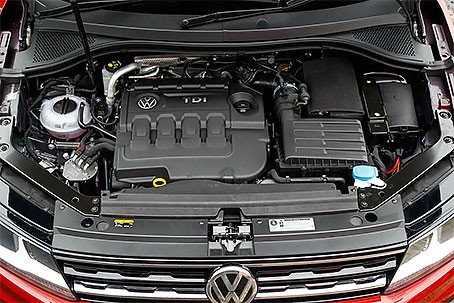The 2016 Volkswagen Tiguan, while a popular compact SUV, has been known to experience certain problems. Understanding these potential issues can help owners address them proactively and maintain their vehicles effectively. This guide delves into the common problems reported for the 2016 VW Tiguan.
Engine and Powertrain Problems in the 2016 VW Tiguan
Engine-related issues are among the most frequently reported problems for the 2016 Tiguan. These can range from minor inconveniences to significant performance problems. A common indicator of engine trouble is the illumination of the check engine light.
Throttle Body Issues
The throttle body can malfunction, leading to symptoms like rough idling, fluctuating RPMs, and the check engine light turning on. This can negatively impact the vehicle’s performance, especially at lower speeds.
Turbocharger Problems
Turbocharger malfunctions are another prevalent issue, often resulting in a noticeable lack of power, particularly when trying to maintain highway speeds. A straining engine sound can indicate a potential turbocharger problem.
Carbon Deposit Buildup
The 2016 Tiguan’s engine design can contribute to carbon buildup, potentially leading to black smoke from the exhaust, sensor failures, and diminished performance. The TSI direct injection engine is particularly susceptible to this issue. Cleaning the intake manifold, intake ports, and valves can help address carbon buildup.
Timing Chain Tensioner Failure
The timing chain tensioner, often made of plastic, is prone to failure. Rattling or misfiring sounds during idling, coupled with a check engine light and contaminated engine oil, can signal a timing chain issue. This can be a costly repair.
Other Common Issues in the 2016 VW Tiguan
Beyond engine problems, the 2016 Tiguan can experience other issues affecting various systems.
Hesitation During Acceleration
Many owners have reported hesitation when accelerating, potentially caused by a lean fuel/air mixture. This can stem from a faulty mass airflow sensor, fuel pump, throttle position sensor, or dirty fuel injectors. This issue can be dangerous, especially during highway driving.
Electrical System Problems
Electrical issues can manifest in various ways, affecting exterior lights, the infotainment system, and the rearview camera.
Exterior Lighting Malfunctions
Problems with headlights, taillights, and interior lights have been reported, sometimes requiring recalls to address them.
Infotainment System Glitches
The infotainment screen can freeze or go blank, often requiring a system reset or update.
Excessive Oil Consumption
Some 2016 Tiguans have exhibited high oil consumption, potentially due to bad cylinder seals.
Rearview Camera Issues
Rearview camera problems are not uncommon and have even led to recalls.
Airbag System Concerns
Issues with the airbag control module and airbag deployment have been reported.
Automatic Emergency Braking (AEB) Problems
Overly sensitive sensors can cause the AEB system to engage unexpectedly or fail to activate when needed.
Steering System Malfunctions
Problems with the clock spring can affect the multifunction steering wheel and other systems. Power steering can also disengage, making steering difficult.
Fuel System Problems
Fuel leaks, faulty fuel pumps, and issues with the N80 purge valve can occur, leading to performance issues and increased fuel consumption.
Engine Stalling
Engine stalling, often accompanied by the Electronic Power Control (EPC) warning light, can be attributed to a faulty fuel injector wiring harness or engine problems.
Seats and Seatbelt Issues
Some owners have reported premature wear and tear of seats and issues with seatbelts.
In conclusion, while the 2016 VW Tiguan offers many desirable features, potential buyers should be aware of these common problems. Regular maintenance and prompt attention to any warning signs can help mitigate these issues and ensure a positive ownership experience. Consulting a qualified Volkswagen specialist for diagnosis and repair is recommended for any significant problems.

